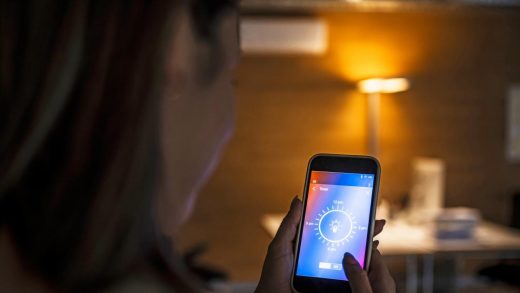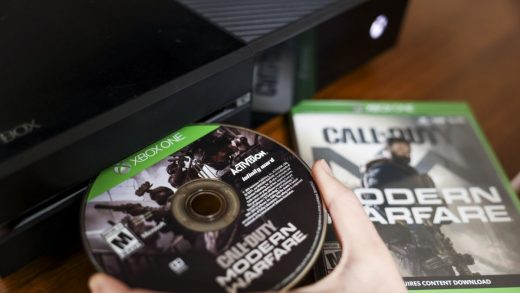:format(webp)/https://www.thestar.com/content/dam/thestar/entertainment/music/2022/09/02/sama-abdulhadi-is-bringing-the-sounds-of-palestines-underground-techno-scene-to-electric-island-in-toronto/_1_main.jpg)
Sama’ Abdulhadi, known as the “Queen of Palestinian techno,” has established herself as one of the most celebrated DJs to emerge from the Middle East.
Buoyed by the viral success of an exhilarating Boiler Room set in her hometown of Ramallah in 2018 — a set that recently surpassed 10 million views on YouTube – Abdulhadi now finds herself in the midst of a massive world tour that has included gigs at Coachella, Glastonbury and the iconic Warung Beach Club in Brazil.
But Abdulhadi’s journey from Palestine’s underground electronic scene to international fame has been winding, tumultuous and politically charged. Building a creative career in the Israeli-occupied West Bank means navigating curfews and restrictions on movement, enduring cycles of violence and risking arrest.
Last December, Abdulhadi drew the ire of conservative Palestinians following a performance at the Maqam Nabi Musa, a complex attached to a mosque near Jerusalem. After her set was interrupted by protesters, Abdulhadi was detained in a jail in Jericho for more than a week.
None of these struggles, however, prepared her for the unique toil of the global music festival circuit.
“I’m wondering how these DJs are still alive,” Abdulhadi joked in a phone interview with the Star this week. “All the flights and the travel and the crazy hours. You’re juggling a thousand things at the same time.”
Speaking from London, U.K. a few days before her first-ever Canadian show, set to take place at Electric Island in Toronto on Sunday, the 32-year-old sounds tired, but grateful.
“It’s a little bit surreal, I guess. I’ve never done the full on festival summer thing in my life,” she explained. “But it’s really magic.”
Based on social media footage, Abdulhadi’s recent gigs are electrifying and cathartic, but for her fans around the world, her music represents something bigger than music. A proud and politically outspoken Palestinian woman, she’s been embraced as a symbol of freedom and resistance to what Amnesty International recently labelled acts of apartheid.
“(Electronic music) is escapism for people in Palestine,” she explained. “But for the rest of the world, what we’re doing is a political statement.”
Growing up in the West Bank, Abdulhadi was exposed at an early age to the trauma of the Israel-Palestine conflict.
As a young teenager, she lived through the violence of the Second Intifada — a major Palestinian uprising against the occupation that lasted from 2000 to 2005.
Music became her refuge.
“It was the place where I escaped everything,” she explained. “It became my meditation and the place where I disconnect from everything — to not think of politics, because every day is politics.”
As a young adult, Abdulhadi bounced around the region. She lived in Beirut, where she immersed herself in the established Lebanese techno scene; in Jordan, where she studied audio engineering; and then in Egypt, where she experimented as a sound designer for TV and movies.
Finally, after honing her skills as a DJ and producer, she returned home to Ramallah, not to become a professional musician, but to simply share her love of music with her community.
“I never even thought about being a DJ,” she said. “I didn’t think that was an actual thing that people could do as a job.”
Located less than an hour north of Jerusalem, Ramallah is a small city peppered with a unique mix of Middle Eastern and Western-style restaurants, cafes serving Arabic coffee and bars serving beer from the nearby Taybeh Brewery.
Despite existing under an Israeli occupation for nearly 75 years, Ramallah is one of Palestine’s major cultural centres, home to a burgeoning hip hop scene, film festivals, crossfit gyms and museums.
Along with Jerusalem, Bethlehem, Nablus, Jaffa, Nazareth and Haifa, it forms a constellation of creative and artistic sites that has influenced Palestinian identity across the region and around the world.
It’s here, in makeshift venues located in bars or restaurants or other underground locations around the city, in a scene sustained by what Abdulhadi calls “a mutual suffering and hopelessness in tomorrow,” that she first gained traction.
“It’s very raw,” she explained. “There’s this thing that happens when you reach very down low. Life is too beautiful to mess it up for small details. You see it in Egypt, too. The poorer the people are, the more they are giving because they just don’t have anything more to lose, in a way.”
Abdulhadi’s Boiler Room set, a now-legendary 58-minute outdoor sunset rave, is perhaps a perfect distillation of Ramallah’s electronic scene. Surrounded by a beautifully diverse audience made up of her friends and family members, Abdulhadi’s riveting set guides the viewer through a range of emotions, with moments of focused intensity followed by moments of unbridled joy.
Unlike European cities such as Berlin or Amsterdam, she explained, ravers in Ramallah never know when the next party will pop up.
“We hadn’t partied for months before (the Boiler Room set), and then nothing happened for a very long time after it, either,” she said. “So when people go to an event here, we don’t even put an end time. We just dance until somebody comes and closes it down.”
“It’s how we stay alive,” she added.
Despite the controversy of last year’s show at Maqam Nabi Musa, Abdulhadi believes the scene in Palestine will continue to grow.
“Everything needs time,” she said. “What keeps my hopes up is that in the eighties, it was not that OK to play techno in the U.K.. So we’re OK. We’re heading the right way. Palestinian rock bands first came out with the first Intifada, and it took a really long time for people to accept them. But now it’s just another genre. It takes time.”
***
Earlier in her career, Abdulhadi was hesitant to speak publicly about the Israel-Palestine conflict. “I just want to be a DJ,” she told DJMag.
But over time, she seems to have embraced her role as an advocate for Palestinian freedom. On Instagram, she often shares media that is critical of Israel’s involvement in Gaza and the West Bank with her 172,000 followers. She is outspoken on social media and at her shows, fans wave giant Palestine flags – a symbol of nationalism that has increasingly come under attack by Israeli authorities.
“Every time somebody tells me ‘you’re an artist stop talking about politics,’ my reply is usually, ‘yeah, but I’m a human being. And that’s my house and that’s my family.’ That for me comes first way before anything else in the world.”
“Forget about music and everything else in the world. At the end of the day we’re people … and I always feel like I do so little, but it is what I can do up to now what I can offer. And I try to do my best.”
And though Abdulhadi sees techno music — with its hypnotic rhythms and expansive soundscapes — as a means of transcendence, she also understands it as a tool to generate sites of freedom and solidarity.
“You are freeing people that are not finding a safe space to express themselves,” she explained. “That alone is something very important, and something very healthy.”
Abdulhadi also sees connections between the struggles of Palestinians and the marginalized communities who pioneered the electronic and dance scenes in places like Detroit, Chicago and Berlin.
“It’s something that you feel. It’s the connection between the people on the dance floor that kind of creates the revolution. Like when you go to a protest, you know, there’s this adrenalin rush that you have that kind of unites you with everybody that you’re getting beaten up with, in a way. It’s the same way on the dance floor, when everybody is vibing on the same beat, it just creates this unity between people that maybe never met. And it gives them that power.”
Abdulhadi is currently based in France, but her heart remains with Ramallah — a city that remains prohibitively difficult and expensive to travel to and from.
“Sadly, there is no balance right now. You have to sacrifice one for the other, in a way. So I don’t go back home as much as I can, but I’m trying to build my name in the West so that eventually I might be able to go home and be able to travel from home and be able to work more at home and be more comfortable in life.”
And though touring may be gruelling, Abdulhadi sounds excited for Sunday’s gig at Electric Island.
“The person who taught me how to DJ (in Jordan) learned how in Montreal. So during my university days, I learned about the scenes in Montreal, Toronto and Vancouver. It’s been 13 years now that I’ve been wanting to come check out Canada. And finally, I’m coming.”
JOIN THE CONVERSATION
:format(webp)/https://www.thestar.com/content/dam/thestar/entertainment/music/2022/09/02/sama-abdulhadi-is-bringing-the-sounds-of-palestines-underground-techno-scene-to-electric-island-in-toronto/embed_option_2.jpg)


